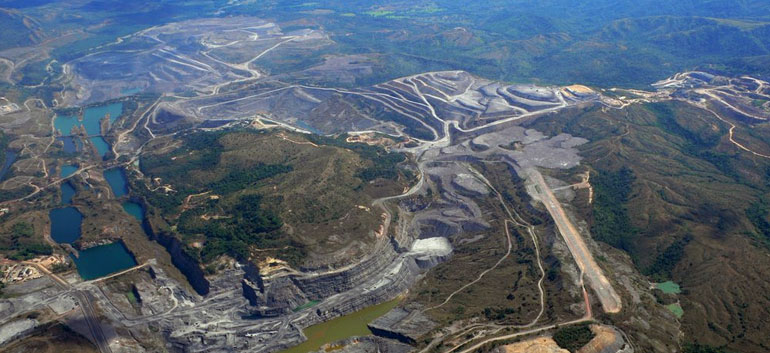Colombia’s Minister of Mines and Energy Amylkar Acosta told the mining company Prodeco, owned by Swiss multinational Glencore Xstrata, that it had to integrate six separate operations in order to renew their license, according to Reuters.
Prodeco has six separate extraction licenses at the same “La Jagua” mine in the northern state of Cesar after the Glencore subsidiary had acquired multiple companies. All of the licenses were assigned for small scale mining, which means Prodeco pays 5% taxes for each permit instead of the 10% they would pay if they had a single license for large scale mining.
Cesar |
Minister Acosta said, “In Prodeco’s case, an aspect we see of great importance is that of integration. For us that is an immovable condition to award the extension,” according to Reuters.
In the interview, Acosta said that the mining company seemed receptive to the conditions and would most likely move ahead with renewing the mining license.
The conditions to renew Prodeco’s license comes after an NGO report by the Dutch peace organization, PAX, that accused Glencore and Drummond of financing and supporting the region’s paramilitary groups.
MORE: Why Drummond and Glencore are accused of exporting Colombian blood coal
Colombia is the world’s 4th largest producer of coal. Sixty-seven percent of US coal imports came from Colombia during the first quarter, according to Bloomberg news.
Prodeco is the country’s third biggest producer of thermal coal, extracting close to 18.6 million tons last year. Prodeco exports coal to the United States, Europe, and Asia.
Coal-bed methane extraction agreement reached
Minister Acosta also said in his interview that an agreement has been reached between Cerrejon and Drummond, Colombia’s biggest coal producers, to begin coal-bed methane (CBM) extraction.
“They reached a deal that they are perfecting and soon will be able to extract industrial scale CBM in Colombia,” Acosta said.
Coal-bed methane extraction is the practice of extracting methane gas from the inner surface area in coal by pumping water out of the coal-bed.
Methane is a greenhouse gas 72 times more potent that carbon dioxide.
According to the Energy Justice Network, in the past, the gas would go into the atmosphere and contribute to global warming, so harvesting the gas would reduce the impact of methane in global warming.
However, its negative effects are most evident in the pollution of the groundwater and surrounding water sources.
Sources
- Hungry U.S. Power Plant Turns to Russia for Coal Shipment (Bloomberg)
- Colombia asks Glencore to merge ops, pay more to extend contract (Reuters)
- Coal Bed Methane (Energy Justice Network)


